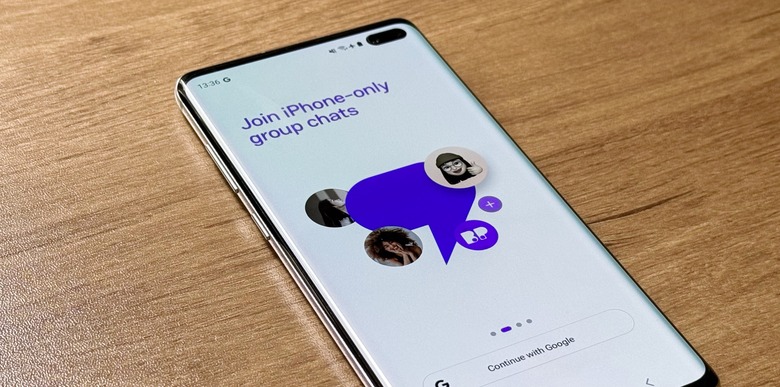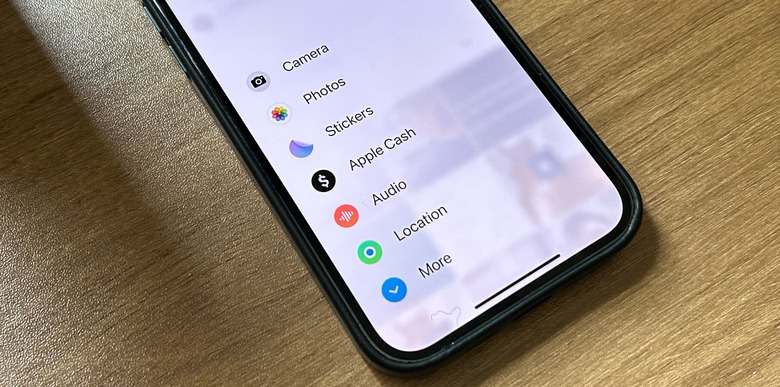Using Beeper Mini Means Stealing iMessage From Apple - And You Need To Read This
Beeper Mini was the app of the moment last week, the breakthrough cross-platform messaging app that brought secure iMessage support to Android. Beeper found a way to tap into Apple's iMessage system and wanted to have FaceTime working on Android next. I said that Beeper Mini's iMessage trick would continue to work until Apple put a stop to it on Friday, and that happened faster than I thought.
Apple intervening means there's little hope of getting Beeper Mini to support iMessage again. Apple will only continue to block and patch loopholes that Beeper Mini would develop. It's about the security of the app and the users on iMessage, Apple said.
This also made me realize that using Beeper Mini practically means you're stealing iMessage from Apple. I don't know who needs to hear this, but iMessage is not a standard of communication. You're not entitled to have iMessage on your devices unless you pay for it. And you pay for it by buying into Apple's ecosystem, starting with the iPhone. Not by buying a Beeper Mini subscription.
Yes, Apple had to block Beeper Mini
Before we talk about money, I'll show you Apple's statement on the matter. The company confirmed it blocked Beeper Mini access without naming the app. It was a security and privacy concern for Apple, though many people will bash the company for it:
At Apple, we build our products and services with industry-leading privacy and security technologies designed to give users control of their data and keep personal information safe. We took steps to protect our users by blocking techniques that exploit fake credentials in order to gain access to iMessage. These techniques posed significant risks to user security and privacy, including the potential for metadata exposure and enabling unwanted messages, spam, and phishing attacks. We will continue to make updates in the future to protect our users.
Think about it for a second: would you want any app to find a loophole in WhatsApp, Signal, or Google RCS? You know, so that they could register devices on the network, devices that would gain access to the platform? Wouldn't that cause some concern?
What if instead of Beeper, a spam service figured out how to get into iMessage like that and abuse it to send spam iMessages to users? Is this something from any messaging platform?
Let's talk about the money
I said before that nothing on the internet is free, and you should not have such expectations. Apple's operating system and the built-in apps are free for customers because they bought iPhones, iPads, Macs, and other hardware. iMessage is a part of that.
It's an Apple invention the company sells via the iPhone. It's a great product, too; that's why so many Android users want it. That's why Google wants support for its own RCS service in iPhone.
Running iMessage continuously without any issues isn't free either. Apple has costs related to it that make it possible for about a billion users to talk to each other via iMessage uninterrupted. That Apple also has billions in cash doesn't matter. It still has to pay the infrastructure costs. Just like Google pays to operate RCS messaging or Meta for WhatsApp.
Using iMessage without paying for it is akin to stealing it. And before you ask, you pay for Google's Android and Google's RCS with your data. That's what pays for Google's entire software ecosystem. You get WhatsApp for free because Meta is monetizing its entire social media conglomerate with your data.
How does Signal make money? It's getting significant donations to offer its end-to-end encrypted service.
Green bubble texts are less secure. So why would Apple block a new app allowing Android users to chat with iPhone users on iMessage? Big Tech executives are protecting profits by squashing competitors.
Chatting between different platforms should be easy and secure. https://t.co/fHAS5ckaEA
— Elizabeth Warren (@SenWarren) December 10, 2023
But iMessage can't be free to Android users via Beeper Mini hacks. Even Beeper charges users $2/month to work. In very simple terms, you'd be paying Beeper, so you can steal iMessage from Apple.
It's not like Apple grabbed a communications standard from the GSMA, twisted it around, and then left Android behind. iMessage is a proprietary tech that's optional for users. Senator Elizabeth Warren reacted to the Beeper Mini saga, making it seem like Apple is doing Android users a disservice:
Green bubble texts are less secure. So why would Apple block a new app allowing Android users to chat with iPhone users on iMessage? Big Tech executives are protecting profits by squashing competitors.
Chatting between different platforms should be easy and secure.
Beeper Mini isn't an iMessage competitor. It plugged into Apple's proprietary system and charged users for it. Blue bubbles are secure because Apple protects them. That means fixing holes like the one Beeper Mini used.
There's a lot of competition in the space already that allows easy and secure chatting between different platforms. If you're on Android and can't talk to your friends because they can't be bothered by installing WhatsApp or Signal, iMessage isn't your problem. I say this as a longtime iPhone user relying more on WhatsApp to chat than iMessage. However, we've never had these green vs. blue bubble wars in Europe and never will.
Should Apple bring iMessage to Android? That's a different conversation. One that Apple might be ready to have once it starts adopting RCS, the GSMA standard, not Google's.

